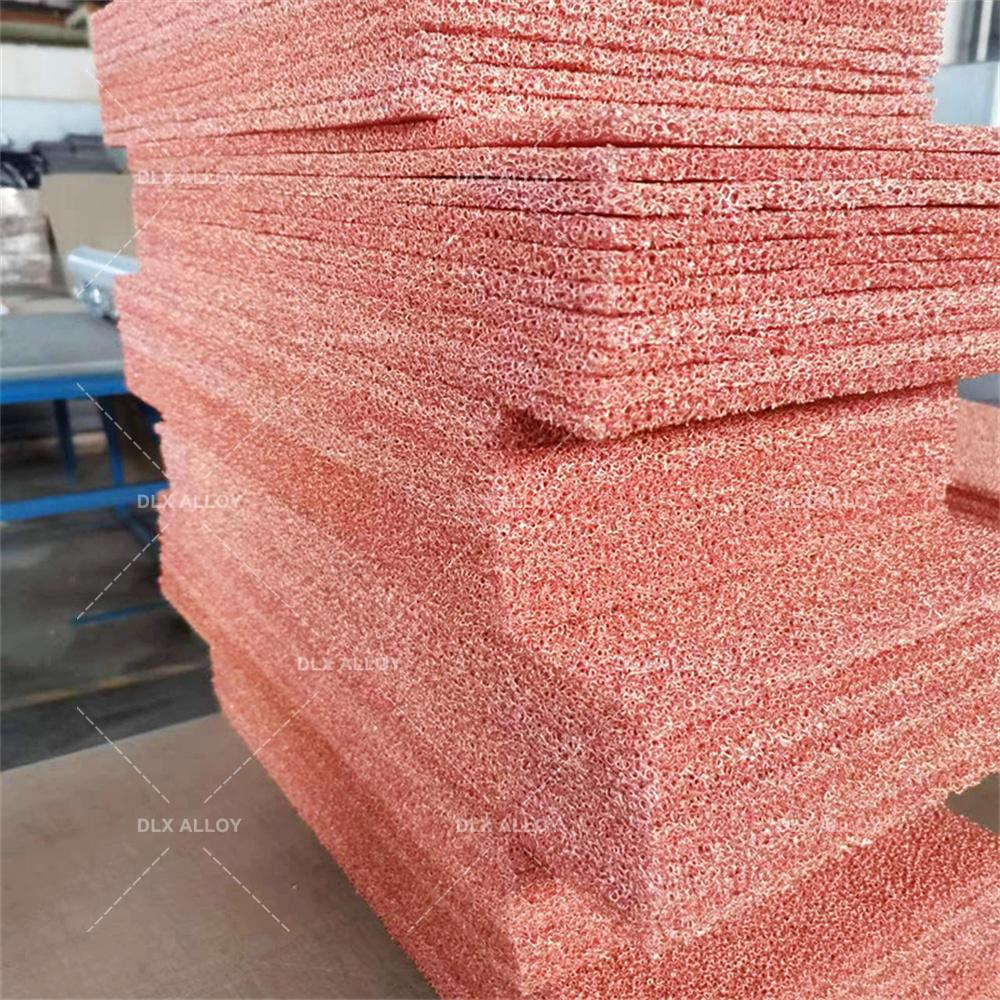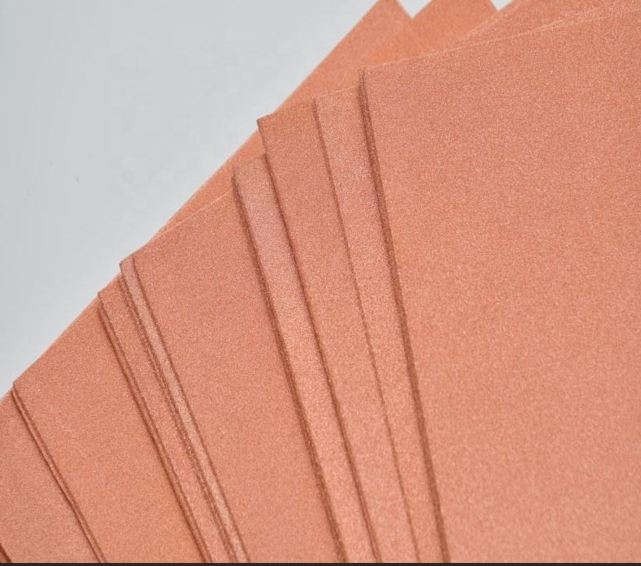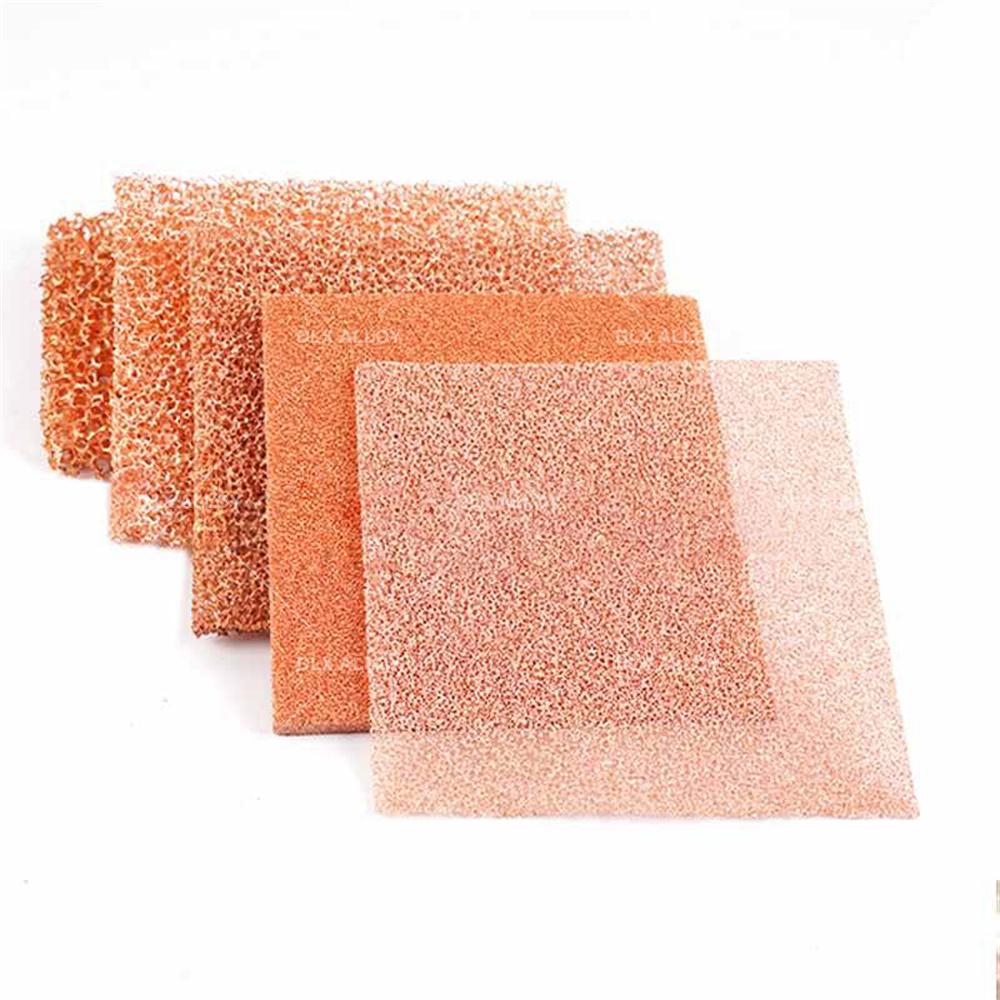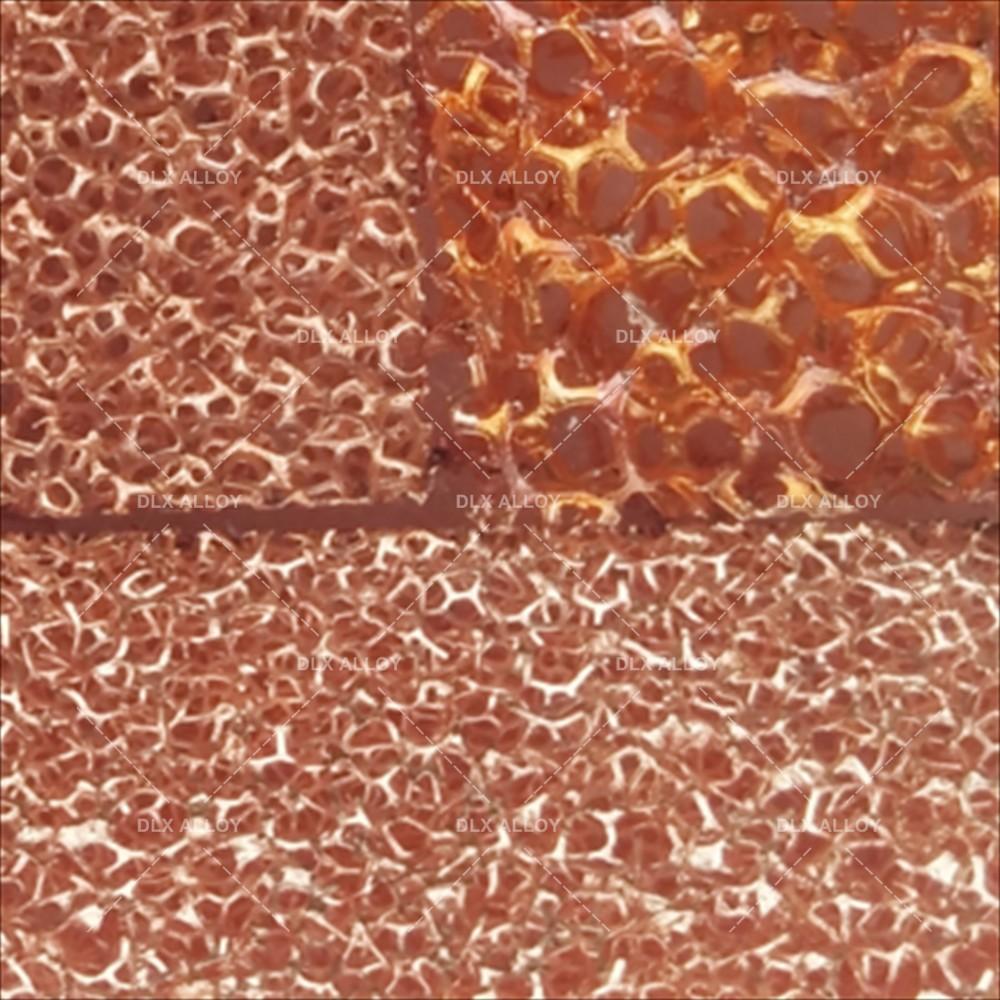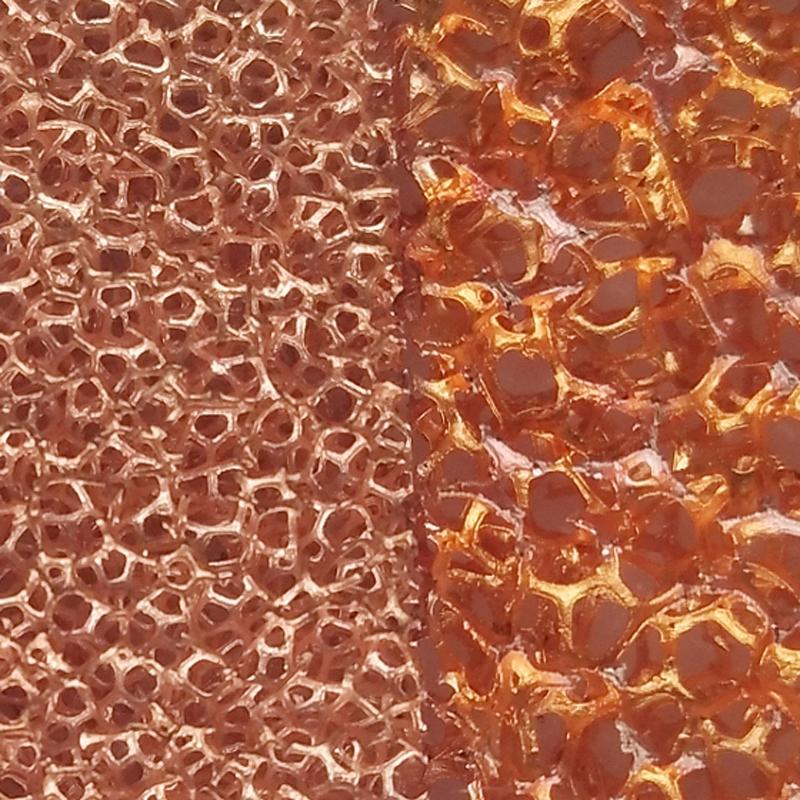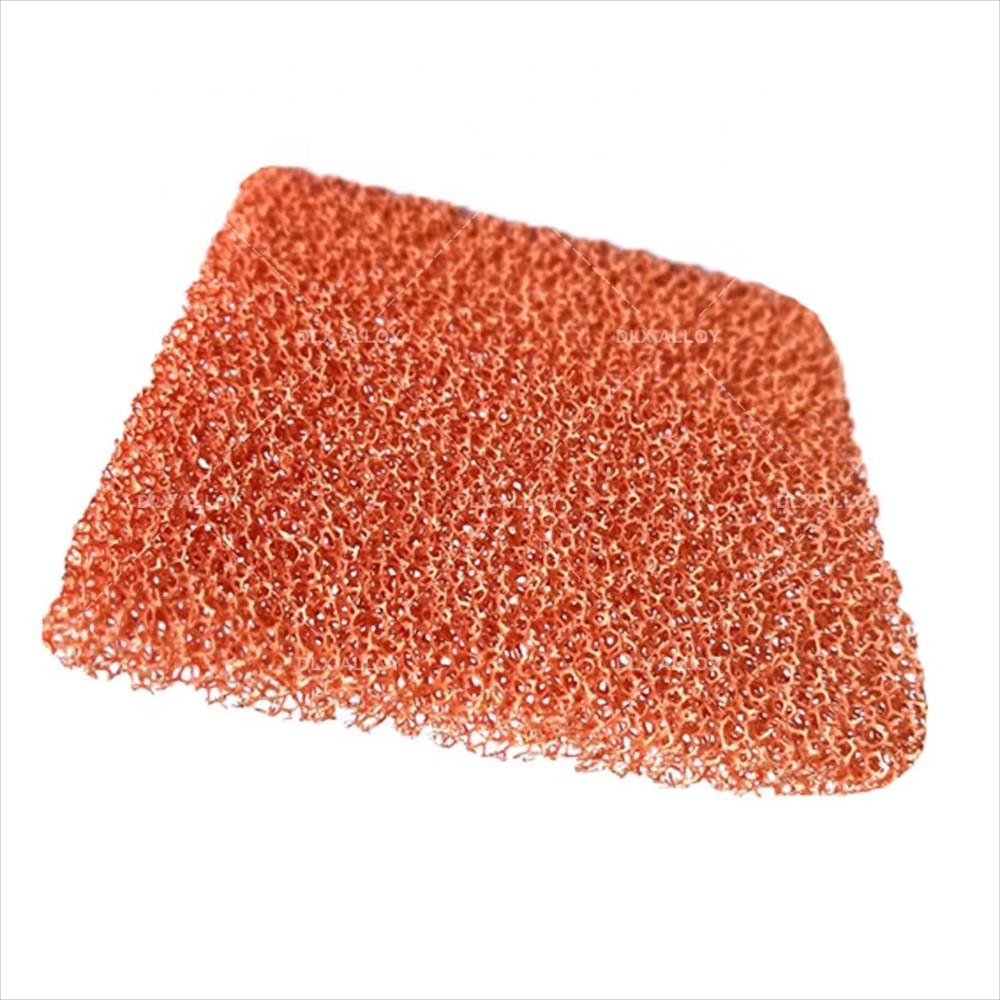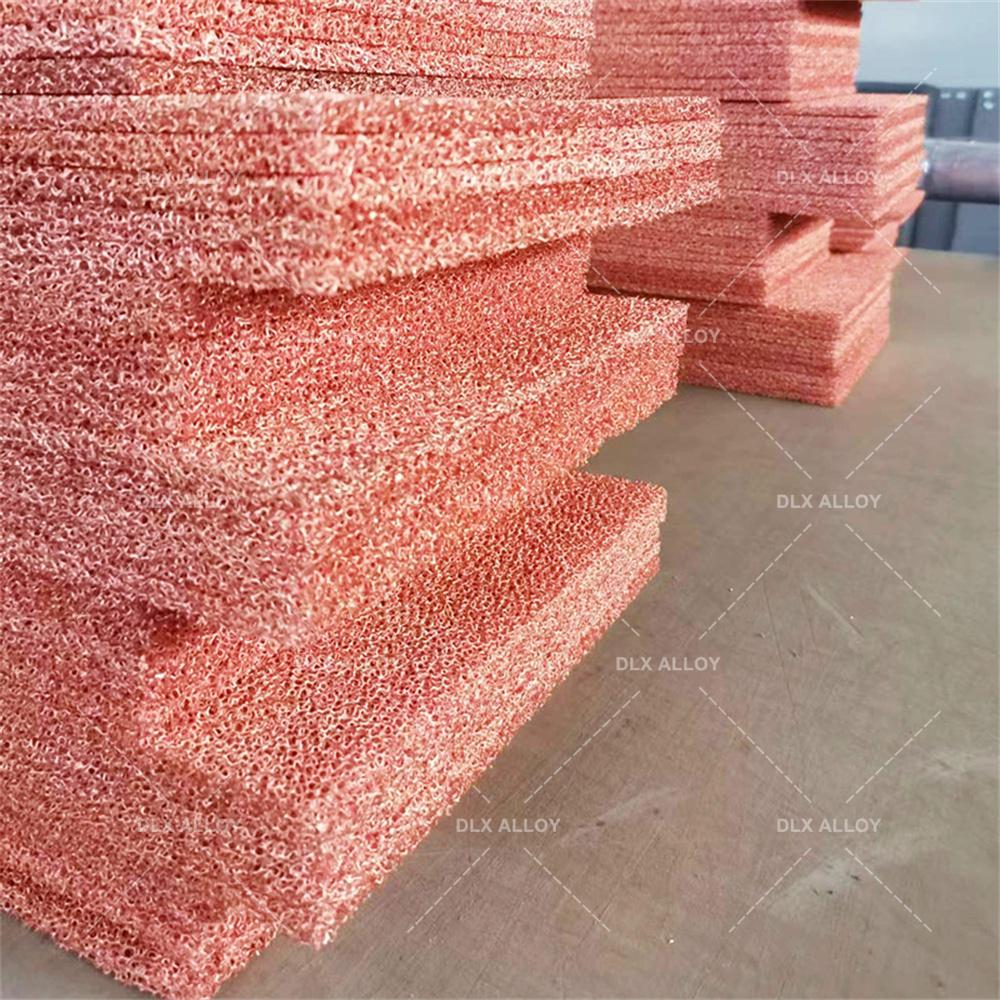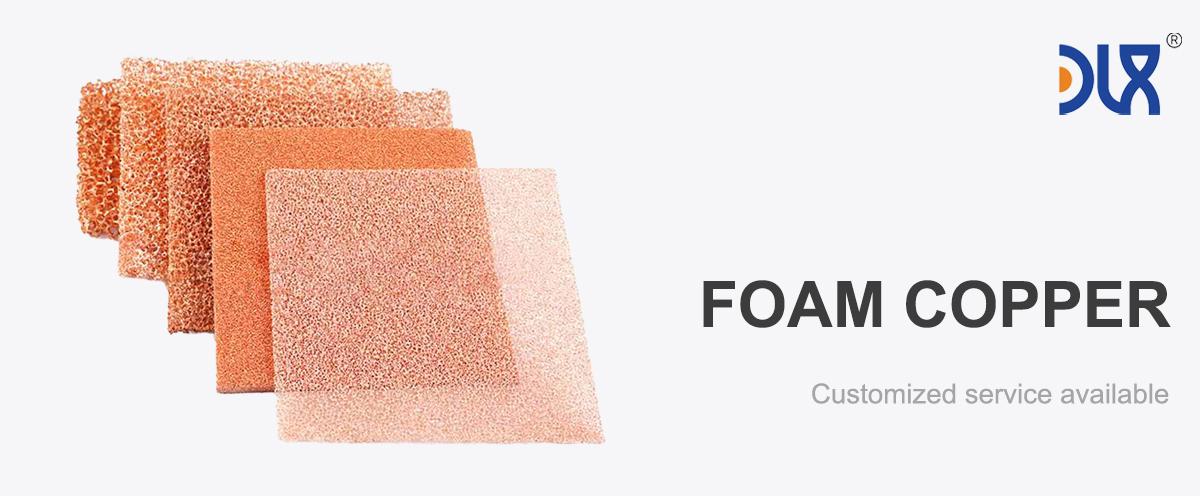
Our high-surface-area Copper Foam is a game-changer for antibacterial filtration, delivering top-tier performance in air and water purification. Lightweight, highly porous, and naturally antimicrobial, it’s transforming industries like healthcare and water treatment. Let’s dive into what makes our copper foam special, explore its applications, unpack industry trends, and show why we’re leading the way in antibacterial filtration solutions.
For more details, pls directly contact us.
Our copper foam is a high-purity, porous material with a three-dimensional, open-cell structure, boasting up to 95% porosity. Weighing just 0.5-1.5 g/cm³, it’s ultra-lightweight yet durable, designed to maximize surface area for antibacterial filtration. Copper’s natural antimicrobial properties kill bacteria on contact, while the high surface area ensures maximum exposure to contaminants. The foam’s open-cell structure allows efficient fluid flow, making it ideal for air and water filtration. We craft it using advanced electrodeposition and 3D printing, allowing us to customize pore size and density to fit your specific filtration needs. Whether you’re purifying hospital air or drinking water, our foam delivers unmatched results.
For more details, pls directly contact us.
Clean air and water are critical for health and safety, and our copper foam is built to make filtration more effective. Its high surface area maximizes contact with bacteria, leveraging copper’s natural antimicrobial properties to kill pathogens quickly. The porous structure ensures smooth fluid flow, reducing pressure drops and maintaining filtration efficiency. Its lightweight design makes it ideal for compact systems, saving space and energy. The foam’s durability ensures it holds up in humid or high-pressure environments, cutting maintenance costs. This mix of antibacterial efficiency, high surface area, and lightweight design makes our foam a must-have for advanced filtration systems.
Industry Analysis: The Copper Foam Market Surge
The copper foam market is booming, driven by the global demand for clean air and water solutions. Valued at $180.5 million in 2023, it’s projected to hit $246.7 million by 2030, growing at a CAGR of 5.42%. Healthcare and water treatment are major drivers, as industries face stricter regulations on air and water quality. HVAC systems, food processing, and public infrastructure are also adopting copper foam for its antibacterial properties. The rise of smart buildings and sustainable filtration is fueling demand for lightweight, high-performance materials.
Sustainability is a key force in this market. Regulations and consumer demand are pushing industries toward recyclable materials and eco-friendly production. Our copper foam fits perfectly—it’s fully recyclable and made with energy-efficient processes. Innovations like nanostructured foams and 3D printing are opening new possibilities, allowing us to create tailored filtration structures for specific applications. As industries prioritize efficiency, durability, and sustainability, our copper foam is poised to lead the antibacterial filtration market.
Applications: Where Our Copper Foam Shines
Our high-surface-area copper foam is a versatile material, delivering results across a range of antibacterial filtration applications:
-
Air Purifiers: It kills airborne bacteria in homes, offices, and public spaces, improving air quality.
-
Water Filters: The foam purifies drinking water by eliminating bacteria, ensuring safe consumption.
-
Medical Ventilation Systems: It supports clean air in hospitals, reducing infection risks in critical environments.
-
Food Processing Filters: Our foam ensures sanitary fluid streams in food production, meeting strict safety standards.
-
HVAC Systems: It enhances air quality in smart buildings, killing bacteria in high-traffic areas.
-
Public Infrastructure: The foam purifies water and air in facilities like airports and schools, protecting public health.
Industry Trends: What’s Driving Copper Foam Forward
The copper foam market is moving fast, and we’re staying ahead of the curve. Here are the trends shaping the industry:
-
Clean Air/Water Demand: Stricter regulations and public health concerns are driving demand for antibacterial filtration.
-
Sustainability Push: Eco-friendly production and recyclable materials are must-haves, and our foam aligns with sustainable manufacturing.
-
Smart Building Growth: The rise of HVAC systems in smart buildings is fueling demand for efficient filtration materials.
-
Nanostructured Foams: Advances in nanotechnology are enabling ultra-high-surface-area foams, boosting filtration efficiency.
-
Customization Surge: 3D printing and electroforming let us tailor foam structures for specific filtration needs.
-
Healthcare Expansion: The growth of medical facilities is driving demand for reliable antibacterial filtration solutions.
Why Choose Our Copper Foam?
We’re not just making copper foam—we’re crafting solutions that keep air and water clean. Here’s why our high-surface-area copper foam stands out:
-
High Surface Area: With up to 95% porosity, our foam maximizes antibacterial efficiency and filtration performance.
-
Natural Antimicrobial: Copper’s inherent properties kill bacteria on contact, ensuring clean air and water.
-
Lightweight Design: At 0.5-1.5 g/cm³, our foam cuts weight without sacrificing durability, ideal for compact systems.
-
Fluid Flow Efficiency: The open-cell structure ensures smooth flow, reducing pressure drops and maintaining performance.
-
Eco-Friendly Edge: Fully recyclable and produced with sustainable methods, our foam aligns with green initiatives.
-
Expert Support: Our team partners with you from design to deployment, offering expertise to tackle your toughest filtration challenges.
Comparison Parameters Table
|
Parameter |
Copper Foam |
Silver-Coated Filters |
Polymer Filters |
Ceramic Filters |
|---|---|---|---|---|
|
Antibacterial Efficiency |
High (natural copper properties) |
High (but less cost-effective) |
Low (no inherent antibacterial) |
Low (no antibacterial properties) |
|
Surface Area |
High (up to 95% porosity) |
Low (limited surface area) |
Moderate (inconsistent pores) |
Low (fixed structure) |
|
Weight |
Lightweight (0.5-1.5 g/cm³) |
Heavy (denser than copper) |
Lightweight (but less durable) |
Heavy (denser than copper) |
|
Corrosion Resistance |
Good (resists moderate environments) |
Moderate (prone to wear) |
Poor (degrades in moisture) |
Good (but brittle) |
|
Fluid Flow Efficiency |
High (open-cell structure) |
Moderate (restricted flow) |
Moderate (inconsistent flow) |
Low (poor flow characteristics) |
|
Mechanical Durability |
High (withstands high-pressure cycles) |
Moderate (less durable than copper) |
Low (deforms under stress) |
Low (prone to cracking) |
|
Recyclability |
Fully recyclable |
Limited (complex recycling process) |
Limited (degrades over time) |
Limited (difficult to recycle) |
|
Cost-Effectiveness |
Moderate (long lifespan, high performance) |
High (expensive materials) |
Low (frequent replacements needed) |
High (expensive production) |
Our copper foam outperforms other filtration materials. Silver-coated filters are effective but expensive and less porous, limiting flow efficiency. Polymer filters are lightweight but lack antibacterial properties and degrade in moisture. Ceramic filters are stable but heavy and restrict fluid flow. Our copper foam hits the sweet spot: ultra-high surface area, lightweight design, natural antimicrobial properties, and solid durability, all backed by sustainable production.
We go beyond the product itself. Our end-to-end support—from custom design consultations to system integration—ensures you get the most out of our foam. Our advanced manufacturing techniques, like electrodeposition and 3D printing, deliver consistent quality and tailored solutions that competitors can’t match.
Looking to the Future
The future of high-surface-area copper foam is bright, and we’re excited to lead the way. As demand for clean air and water grows, the need for high-performance, sustainable filtration materials will skyrocket. We’re investing heavily in R&D to push the boundaries of what our foam can do, from nanostructured designs for ultra-efficient filtration to high-density options for large-scale systems. Our commitment to sustainability means we’re constantly refining our processes to reduce waste and energy use, aligning with global environmental goals.
Our high-surface-area copper foam isn’t just a material—it’s a solution for cleaner, safer air and water. It’s lightweight, effective, and built to power the next generation of antibacterial filtration systems. Ready to see how it can transform your project? Let’s talk about making it happen.
For more details, pls directly contact us.
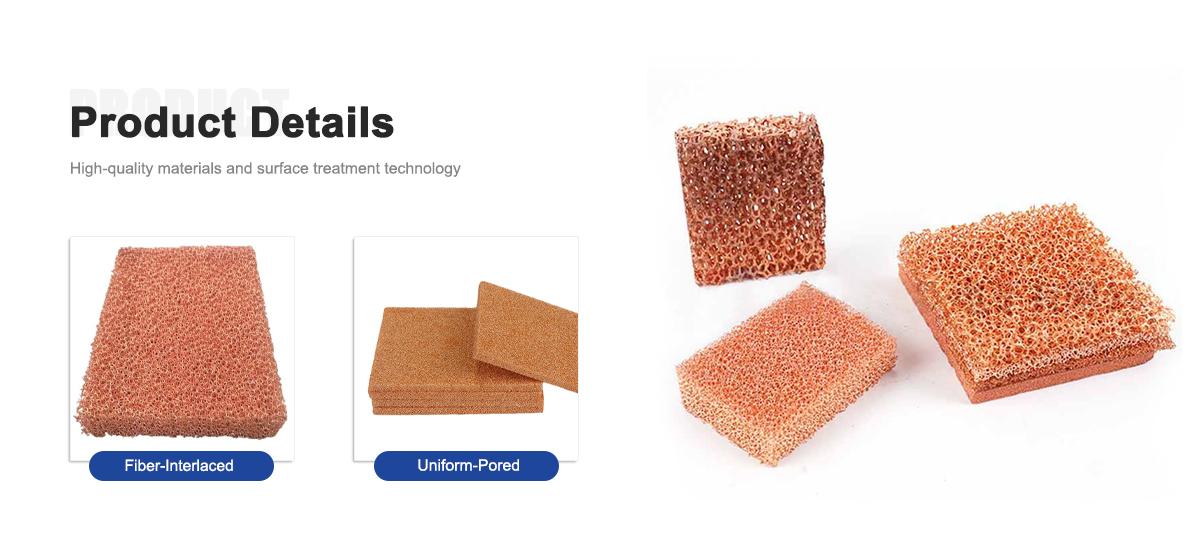
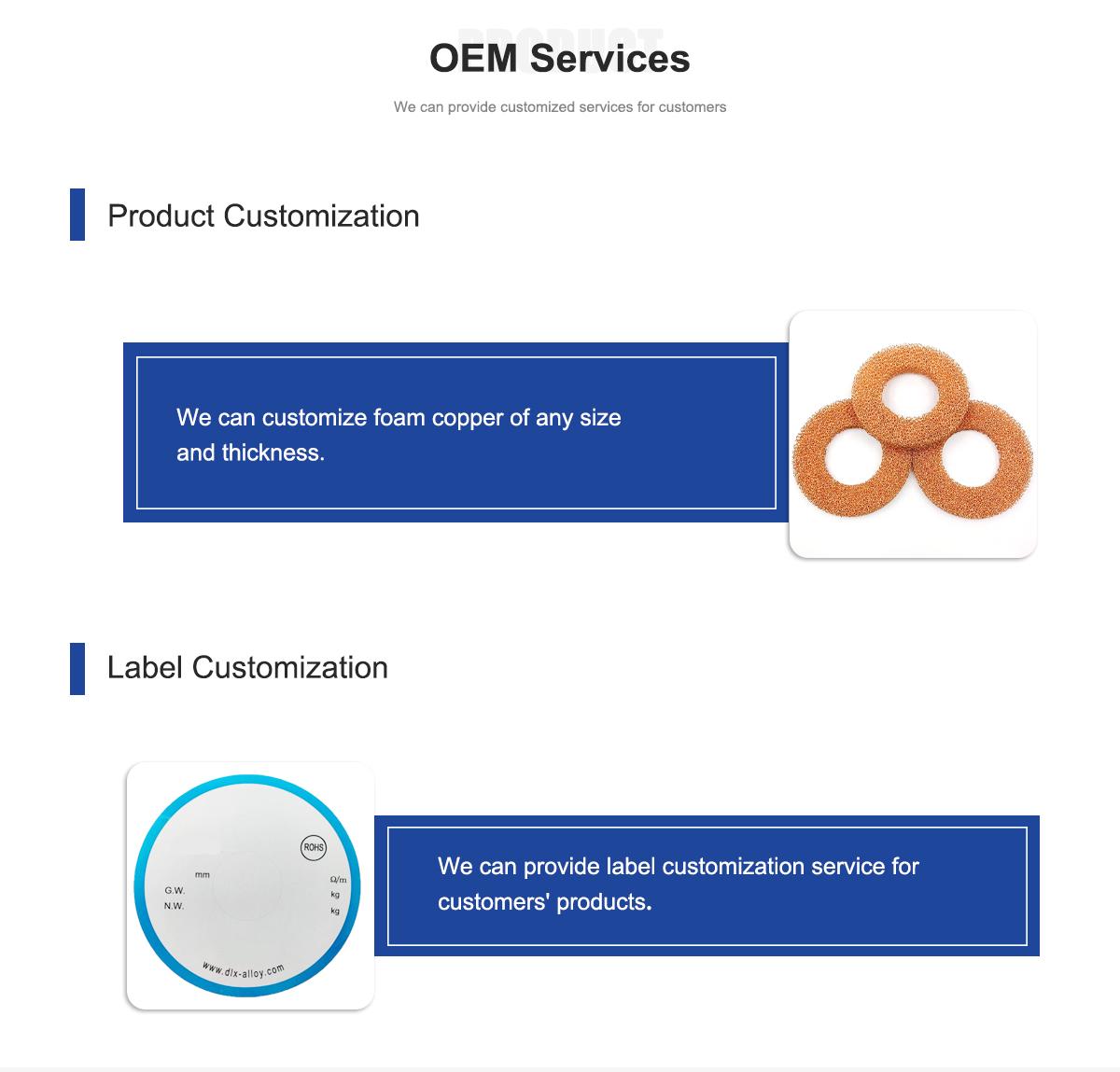
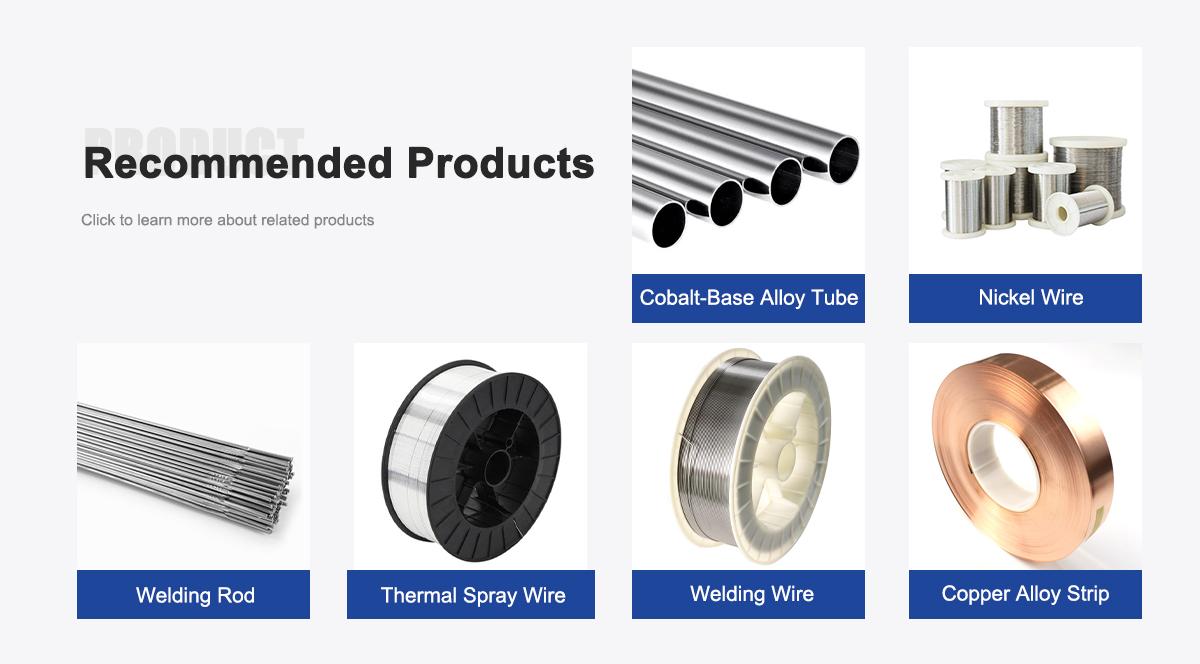
About Us:
Our 12,000㎡ factory is equipped with complete capabilities for research, production, testing, and packaging. We strictly adhere to ISO 9001 standards in our production processes, with an annual output of 1,200 tons. This ensures that we meet both quantity and quality demands. Furthermore, all products undergo rigorous simulated environment testing including high temperature, high pressure, and corrosion tests before being dispatched, ensuring they meet customer specifications.
For all our clients, we offer timely and multilingual after-sales support and technical consulting, helping you resolve any issues swiftly and efficiently.
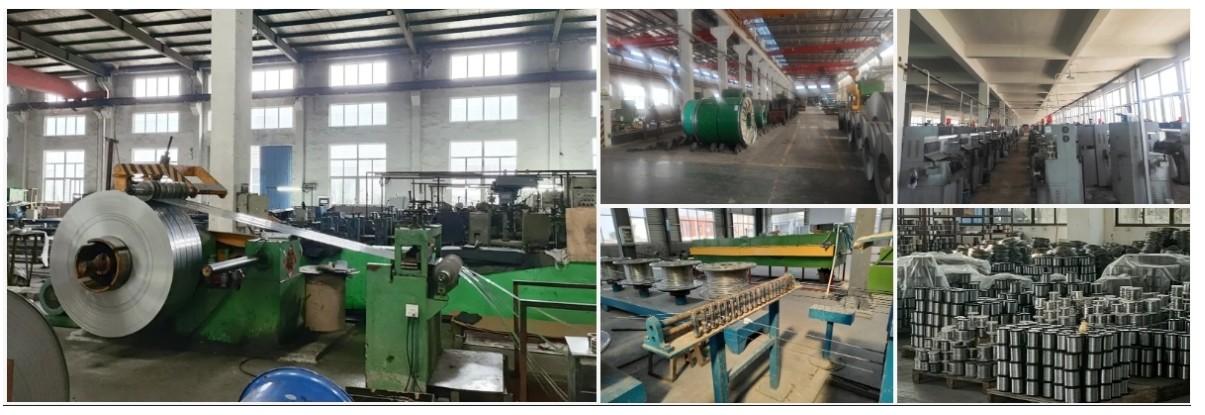
Client Visits
Building Stronger Partnerships

We support all kinds of testing:
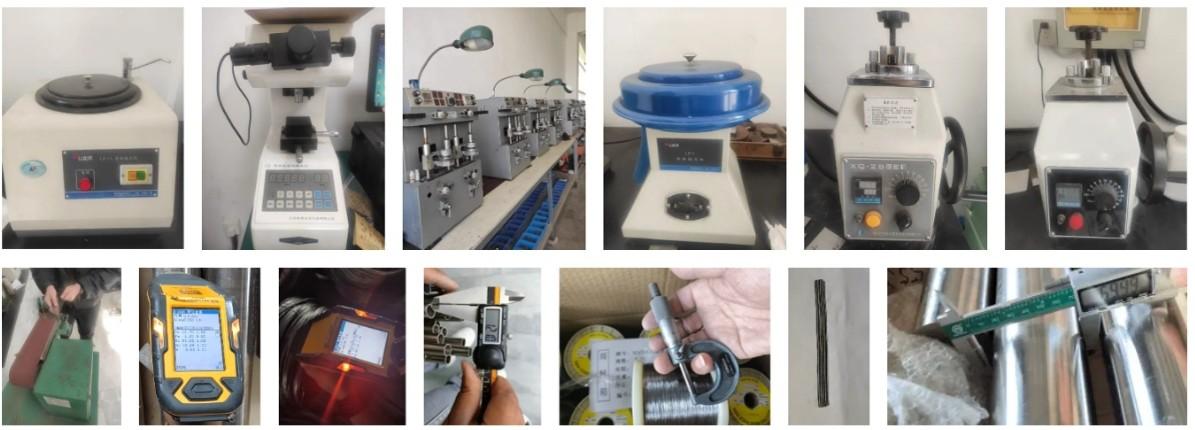

FAQs:
-
What is high-surface-area copper foam?
It’s a lightweight, porous copper material with a high surface area, designed for antibacterial filtration in air and water systems. -
How does copper foam provide antibacterial properties?
Copper’s natural antimicrobial properties kill bacteria on contact, while the high surface area maximizes exposure. -
Which industries use this copper foam?
Healthcare, HVAC, water treatment, food processing, and public infrastructure rely on it for clean air and water. -
Why is high surface area important for filters?
It increases contact with bacteria, enhancing antimicrobial efficiency and filtration performance. -
What are the key applications of this copper foam?
It’s used in air purifiers, water filters, medical ventilation systems, food processing filters, and HVAC systems. -
How does copper foam compare to other filter materials?
It offers higher surface area, better antibacterial properties, and lighter weight than alternatives like silver or polymers. -
What are the latest trends in copper foam for filtration?
Growing demand for clean air/water, nanostructured foam advancements, and sustainable production are driving growth. -
Is this copper foam eco-friendly?
Yes, it’s fully recyclable, supports clean filtration systems, and is produced with sustainable methods.

